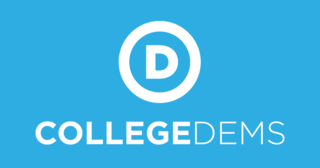The International Confederation of Principals (ICP) is a global association of school leadership organisations.
The International Confederation of Principals (ICP) is a global association of school leadership organisations.
ICP was founded in 1991, and operates through a council with up to three delegates from each member organisation. This meets three times in a two-year period. Council elects an executive committee to work with and support the elected president of ICP, an executive secretary services both executive and council. ICP has over 40 members, each member being a major independent organisation that supports the professional development and work of school leaders. The ICP represents school leaders across five continents; it is non-political and non-sectarian and gives a powerful international voice to school principals. Membership is open to any organisation of school leaders whose constitution contains nothing contrary to the constitution of the ICP.
ICP holds a biennial international convention drawing together school principals from all over the world for dialogue and professional development.
Previous conventions were held in the following locations:
The current President is Mr. Ari Pokka, Finland, and the Executive Secretary is Ms Sheree Vertigan.
Politics in Estonia takes place in a framework of a parliamentary representative democratic republic, whereby the Prime Minister of Estonia is the head of government, and of a multi-party system. Legislative power is vested in the Estonian parliament. Executive power is exercised by the government, which is led by the prime minister. The judiciary is independent of the executive and the legislature. Estonia is a member of United Nations, the European Union, and NATO.

The politics of Singapore takes the form of a parliamentary representative democratic republic whereby the president of Singapore is the head of state, the prime minister of Singapore is the head of government, and of a multi-party system. Executive power is exercised by the Cabinet from the parliament, and to a lesser extent, the president. Cabinet has the general direction and control of the government and is accountable to Parliament. There are three separate branches of government: the legislature, executive and judiciary abiding by the Westminster system. Singapore has been described as being a de facto one-party state.

The Westminster system or Westminster model is a type of parliamentary government that incorporates a series of procedures for operating a legislature. This concept was first developed in England.
The head of government is either the highest or the second-highest official in the executive branch of a sovereign state, a federated state, or a self-governing colony, autonomous region, or other government who often presides over a cabinet, a group of ministers or secretaries who lead executive departments. In diplomacy, "head of government" is differentiated from "head of state" although in many countries, for example the United States, they are the same person.
AIESEC is an international youth-run, non-governmental and not-for-profit organization that provides young people with leadership development, cross-cultural internships, and global volunteer exchange experiences. The organization focuses on empowering young people to make a progressive social impact. The AIESEC network includes approximately 40,000 members in 120+ countries.

The American Guild of Organists (AGO) is an international organization of academic, church, and concert organists in the US, headquartered in New York City with its administrative offices in the Interchurch Center. Founded as a professional educational association, it was chartered by the Board of Regents of the University of the State of New York in 1896, with the authority to grant certificates of associate or fellow to members who passed examinations.

The Australian Government, also known as the Commonwealth Government, is the national government of Australia, a federal parliamentary constitutional monarchy. Like other Westminster-style systems of government, the Australian Government is made up of three branches: the executive, the legislative, and the judicial.
Education International (EI) is a global union federation (GUF) of teachers' trade unions consisting of 401 member organizations in 172 countries and territories that represents over 30 million education personnel from pre-school through university. This makes it the world's largest sectoral global union federation.

The National Trades Union Congress (NTUC), also known as the Singapore National Trades Union Congress (SNTUC) internationally, is the sole national trade union centre in Singapore. NTUC is at the heart of the Labour Movement which comprises 59 affiliated trade unions, 5 affiliated trade associations, 12 social enterprises, 6 related organisations as well as a growing ecosystem of U Associates and enterprise partners. Together, it helms May Day celebrations and organises an annual rally in support of workers' solidarity and commitment to tripartite partnership. The NTUC has had a symbiotic relationship with the People's Action Party (PAP) since its inception in 1961.
A chancellor is a leader of a college or university, usually either the executive or ceremonial head of the university or of a university campus within a university system.
The International Commission on Occupational Health (ICOH), is an international non-governmental professional society, founded in Milan during the Expo 1906 as the Permanent Commission on Occupational Health.
Disabled Peoples' International (DPI) is a cross disability, consumer controlled international non-governmental organization (INGO) headquartered in Ottawa, Ontario, Canada, and with regional offices in Asia-Pacific, the Middle East, Europe, Africa, Latin America, and North America and the Caribbean. DPI is a network of national organizations or assemblies of disabled people, established in 1980–81 to promote the human rights of disabled people through full participation, equalization of opportunity and development. DPI assists organisations in over 152 nations with the day to day issues of helping disabled people. They also host assemblies and symposiums across the world with their different national branches.
The World Design Organization (WDO) was founded in 1957 from a group of international organizations focused on industrial design. Formerly known as the International Council of Societies of Industrial Design, the WDO is a worldwide society that promotes better design around the world. Today, the WDO includes over 170 member organizations in more than 40 nations, representing an estimated 150,000 designers.
The Scottish Council for Development and Industry (SCDI), founded in 1931, is a non-governmental, membership organisation which aims to strengthen Scotland's economic competitiveness through influencing government and key stakeholders to create sustainable economic prosperity for Scotland.

The Independent Primary School Heads of Australia (IPSHA) formerly Junior School Heads Association of Australia (JSHAA), is an incorporated body representing the heads of independent primary schools in Australia. Officially established in September 1952, the Association is broken into state branches, with six offices across Australia. The organisation currently has a membership of nearly 380 Full Members, 60 Associate and Life Members and 23 Overseas Members. Combined, the member schools employ around 6,000 people, and are responsible for educating about 100,000 primary aged children.

The Finnish Red Cross is an independent member of the International Federation of Red Cross and Red Crescent Societies, which is one of the biggest and best-known international organisations in the world and in the field of humanitarian aid. FRC has over 90,000 members and around 45,000 active volunteers in Finland. FRC consists of 12 regional chapters and 550 local branches throughout the country. The current General Secretary is Ms. Kristiina Kumpula. At the end of 2006, the FRC employed 1,168 people, of which 136 worked at the headquarters in Helsinki.

The International Pharmaceutical Students' Federation (IPSF) is a non-governmental, non-political and non-religious organisation that represents pharmaceutical students, pharmacy students and recent graduates from all over the world. It was founded in 1949 and it is the oldest faculty-based student organisation. IPSF represents over 500,000 individuals in more than 100 countries with 127 different representative pharmacy student member organisations.
The International Institute of Humanitarian Law (IIHL) is an independent, “non-profit, humanitarian association having social values as its objectives”, founded in 1970 in Sanremo, Italy. Its headquarters are situated in Villa Ormond, while a liaison office of the Institute is established in Geneva, Switzerland.

The College Democrats of America (CDA) is the official college outreach arm of the Democratic National Committee. It claims over 100,000 college and university student members in College Democrats chapters across the United States.